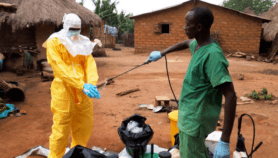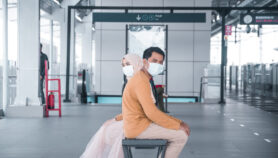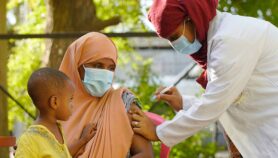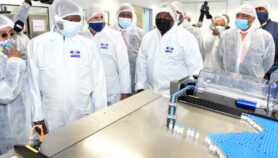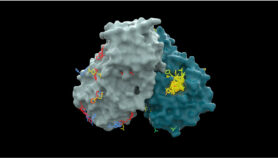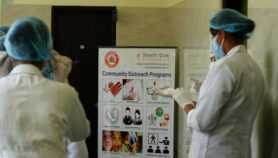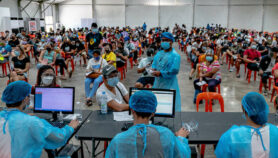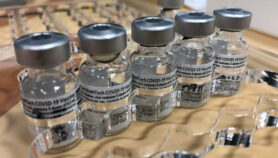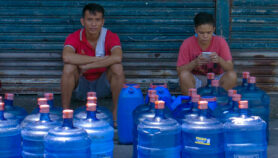13/05/21
Rich countries ‘must give 1bn vaccines’ to poor – COVID-19 panel
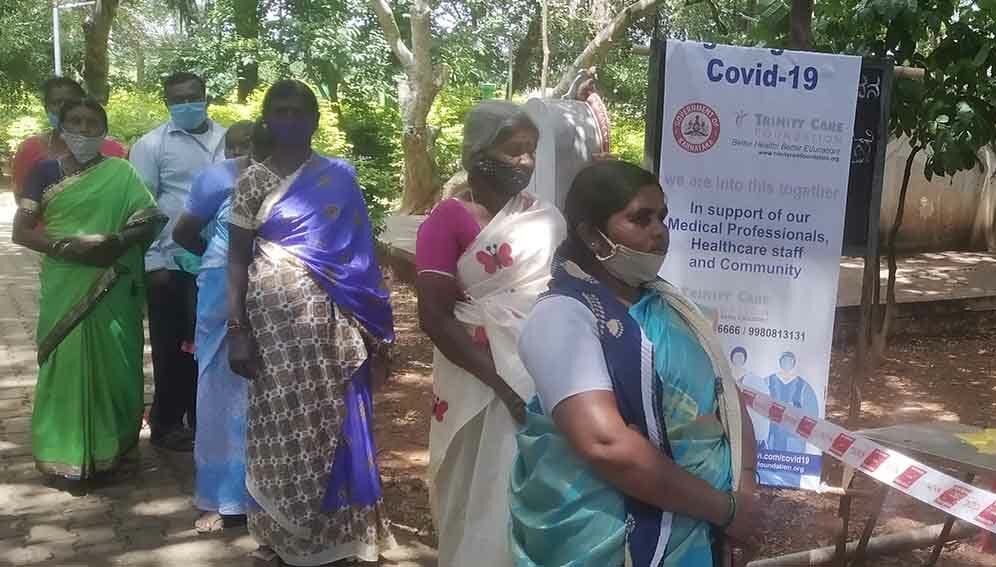
By: Ruth Douglas
Send to a friend
The details you provide on this page will not be used to send unsolicited email, and will not be sold to a 3rd party. See privacy policy.
Richer countries must provide low- and middle-income countries with at least one billion vaccine doses by September, an independent panel on COVID-19 has urged in a damning report that says the deadly pandemic could have been avoided.
Last week alone, nearly 100,000 people around the world died from COVID-19, said Ellen Johnson Sirleaf, co-chair of the Independent Panel for Pandemic Preparedness and Response, launching the findings of an eight-month investigation into the outbreak.
“This is an ongoing disaster that we believe could have been prevented,” Sirleaf told a virtual press conference from Liberia. “The evidence shows that an outbreak became a pandemic because of failures, gaps and delays in preparedness and response.”
“It is the worst combined health and socioeconomic crisis in living memory, and a catastrophe at every level.”
COVID-19: Make it the Last Pandemic, Independent Panel for Pandemic Preparedness
Since the start of the outbreak in December 2019, COVID-19 has infected at least 148 million people and killed more than three million, said the report, COVID-19: Make it the Last Pandemic. “It is the worst combined health and socioeconomic crisis in living memory, and a catastrophe at every level,” it stated.
The panel of 13 global health experts were appointed by the World Health Organization (WHO) in 2020 to review evidence on how the disease became a pandemic and the global and national responses to the outbreak.
The WHO itself, however, came in for criticism, with the panel highlighting delays in the time taken to declare a Public Health Emergency of International Concern in January 2020. Most countries also failed to act with sufficient urgency in response to the outbreak, the panel found.
States that devalued science have been among the hardest hit, it noted, failing to build public trust in their responses and pursuing “inconsistent strategies” resulting in high infection and death rates.
Global inequalities
The report said the pandemic had deepened existing inequalities in the world, pushing up to 125 million people into extreme poverty. “Those who had least before the pandemic have even less now,” it said.
While successful vaccination programmes are under way in many countries, fewer than one in 100 people in low-income countries have received a first dose, the panel noted, with the poorest countries “at the tail-end of the vaccine queue”.
The COVAX facility, established to ensure equitable access, is making “good progress” but has been hampered by insufficient funds, vaccine nationalism, and vaccine diplomacy, they found.
The panel said vaccine production needed to be scaled up “urgently and equitably” across the globe, with manufacturing capacity built up in Africa, Latin America and other low- and middle-income regions, as current production capacity was stretched to the limit.
The panel urged vaccine-producing countries and manufacturers to convene under the joint auspices of the WHO and the World Trade Organization to agree to voluntary licensing and technology transfer.
“If actions on this don’t occur within three months, a waiver of intellectual property rights under the Agreement on Trade-Related Aspects of Intellectual Property Rights should come into force immediately,” the report added.
Sirleaf stressed that any changes to licensing must come with “technology transfer”. “That’s very important for the poor countries,” she said. “[…] If we want to get the supply increases, then one must expand the manufacturing capacities, and it has to be relocated in such a way that it’s not all stuck in the Americas or in Europe.”
Inequitable vaccine distribution threatens to undermine global efforts to curb the disease as new variants emerge, the report stressed, adding: “The more quickly we vaccinate now, the less likelihood there is of ever more variants emerging.”
The panel called for stronger leadership and better coordination at all levels, including a more focused and independent WHO, a Pandemic Treaty, and a senior Global Health Threats Council.
Peter Piot, head of the London School of Hygiene and Tropical Medicine, welcomed calls for a Global Health Threats Council and urged immediate action on vaccine redistribution.
“The imperative is to implement the immediate call for actions on redistributing vaccines, funding the COVAX platform, and increasing availability and manufacturing capacity of vaccines right now,” he said. “This is not only a moral imperative, but critical for pandemic control.”
WHO director-general Tedros Adhanom Ghebreyesus said he would review the findings and work with member states to “build a stronger WHO and a healthier, safer, fairer future for all of us”.
Panel co-chair Helen Clark, former prime minister of New Zealand, said, “The tools are available to put an end to the severe illnesses, deaths, and socioeconomic damage caused by COVID-19. Leaders have no choice but to act and stop this happening again.”







